Where you live may affect your survival after heart attack
Kaiser Permanente study finds heart attack survivors from disadvantaged neighborhoods face higher risk of death within 5 years than those from wealthier areas.
PRESS RELEASE
Contact: Terry Kanakri
terry.kanakri@kp.org
626-405-2652
Kerry Sinclair
ksinclair@webershandwick.com
310-854-8278
PASADENA, Calif. — A study of more than 31,000 Kaiser Permanente members in Southern California showed that Black patients from disadvantaged neighborhoods were significantly more likely to die within 5 years of surviving a heart attack than white patients. In contrast, there was no difference in rates of death between white patients and black patients who lived in well-resourced neighborhoods.
The study was published in the Journal of the American College of Cardiology.
“All patients in this study had equal access to medical care and were treated at the same medical facilities, but despite comparable health care access, Black patients from lower resourced neighborhoods still had higher mortality compared to white patients,” said the senior author of the research, Mingsum Lee, MD, PhD, a cardiologist with the Kaiser Permanente Los Angeles Medical Center. “This study suggests that social and environmental factors can affect a person's outcome after a heart attack, and where a person lives can have a powerful impact on health outcomes.”
The researchers analyzed records from 31,275 patients who were treated for a heart attack in a Kaiser Permanente hospital in Southern California between 2006 and 2016. The researchers assigned each patient a neighborhood disadvantage score based on home address using the Area Deprivation Index, a validated index for assessing neighborhood disadvantage based on 17 variables reflecting education, income, employment, and household characteristics. The researchers examined outcomes for each patient over an average of 5 years.
The research revealed significant differences by race, which were differentiated by neighborhood wealth.
- The outcomes for Black patients from well-resourced neighborhoods were similar to white patients from those same neighborhoods.
- Black patients from lower resourced neighborhoods were 19% more likely to die than white patients from those same neighborhoods.
“These findings may be of particular interest to health systems, since most health systems invest heavily to improve the quality of care provided to heart attack patients within the medical system,” Dr. Lee said, “However, what this study shows is that a patient’s post-discharge environment also matters when it comes to long-term health outcomes.”
Among the ways that Kaiser Permanente works to support the communities it serves is the Thriving Communities Fund, which helps to address housing instability and homelessness. In addition, Kaiser Permanente’s ongoing partnerships with community organizations, municipal leaders, and public health champions are working to incorporate health, equity, and sustainability considerations into public policy and the built environment in ways that influence how neighborhoods take shape and grow.
Other authors of the study include Jesse J. Goitia Jr., MD; Derek Q. Phan MD; Franz Schweis, MD; Maereg Wassie, MD; Yuh-Jer Albert Shen, MD, MS, of the Kaiser Permanente Los Angeles Medical Center; and Bryan Lin, MS, formerly of the Department of Research & Evaluation, Kaiser Permanente Southern California in Pasadena, Calif.
About Kaiser Permanente
Kaiser Permanente is committed to helping shape the future of health care. We are recognized as one of America’s leading health care providers and not-for-profit health plans. Founded in 1945, Kaiser Permanente has a mission to provide high-quality, affordable health care services and to improve the health of our members and the communities we serve. We currently serve approximately 12.5 million members in 8 states and the District of Columbia. Care for members and patients is focused on their total health and guided by their personal Permanente Medical Group physicians, specialists, and team of caregivers. Our expert and caring medical teams are empowered and supported by industry-leading technology advances and tools for health promotion, disease prevention, state-of-the-art care delivery, and world-class chronic disease management. Kaiser Permanente is dedicated to care innovations, clinical research, health education, and the support of community health.
-
Social Share
- Share Where You Live May Affect Your Survival After Heart Attack on Pinterest
- Share Where You Live May Affect Your Survival After Heart Attack on LinkedIn
- Share Where You Live May Affect Your Survival After Heart Attack on Twitter
- Share Where You Live May Affect Your Survival After Heart Attack on Facebook
- Print Where You Live May Affect Your Survival After Heart Attack
- Email Where You Live May Affect Your Survival After Heart Attack

March 27, 2025
We’re committed to mentorship, mental health, and communities
Kaiser Permanente awarded Elevate Your G.A.M.E. a grant to expand program …

March 25, 2025
AI in health care: 7 principles of responsible use
These guidelines ensure we use artificial intelligence tools that are safe …
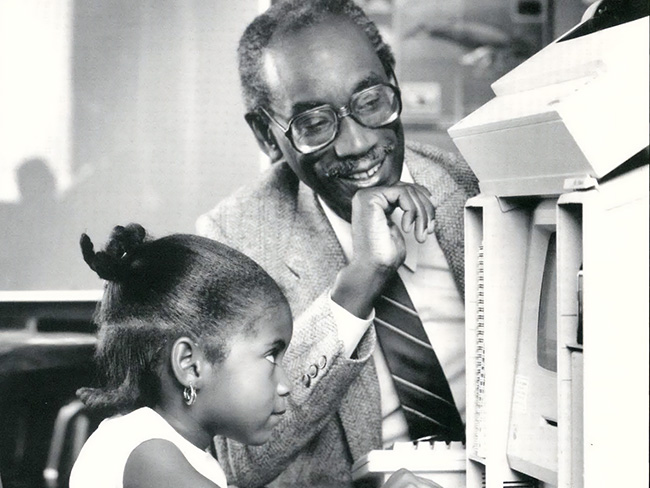
March 17, 2025
Remembering Bill Coggins and his lasting legacy
The founder of the Kaiser Permanente Watts Counseling and Learning Center …

February 21, 2025
Broken heart syndrome: What to know
NPR

December 26, 2024
Linking isolated communities to care
A collaborative partnership, powered by trusted nonprofit partners, brings …

November 11, 2024
Medicare telehealth flexibilities should be here to stay
We urge Congress to extend policies that have improved access to care and …

November 11, 2024
Health care coverage now accessible to uninsured people
Indigenous farmworkers may qualify for new Kaiser Permanente coverage.

November 6, 2024
A best place to work for veterans
As a 2024 top Military Friendly Employer, Kaiser Permanente supports veterans …

October 15, 2024
Our dedication to fostering well-being and equity
The 2023 Kaiser Permanente Southern California Community Health County …

September 16, 2024
Voting affects the health of our communities
In honor of National Voter Registration Day, we encourage everyone who …

July 16, 2024
Teacher residency program improves retention and diversity
A $1.5 million Kaiser Permanente grant addresses Colorado teacher shortage …

June 19, 2024
Investments in Black community promote total health for all
Funding from Kaiser Permanente in Washington helps to promote mental health, …

May 7, 2024
Can the badly broken prescription drug market be fixed?
Prescription drugs are unaffordable for millions of people. With the right …

April 12, 2024
It’s time to address America’s Black maternal health crisis
Health care leaders and policymakers should each play their part to help …

March 18, 2024
Program helps member prioritize her health
Medical Financial Assistance program supports access to health care.

March 6, 2024
Former employee honored for supporting South LA families
Bill Coggins, who founded the Kaiser Permanente Watts Counseling and Learning …
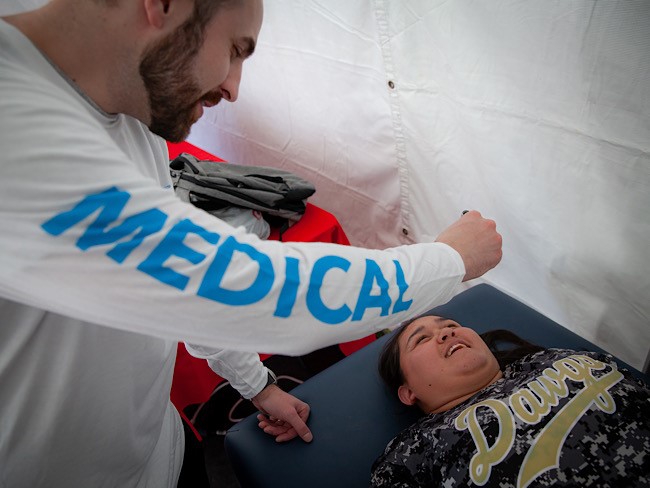
March 4, 2024
Taking care of Special Olympics athletes
Kaiser Permanente physicians and medical students provide medical exams …

February 2, 2024
Expanding medical, social, and educational services in Watts
Kaiser Permanente opens medical offices and a new home for the Watts Counseling …

December 20, 2023
Championing inclusivity at the Fall Games
Kaiser Permanente celebrates inclusion at Special Olympics Southern California …

December 7, 2023
Safe, secure housing is a must for health
We offer housing-related legal help to prevent evictions and remove barriers …
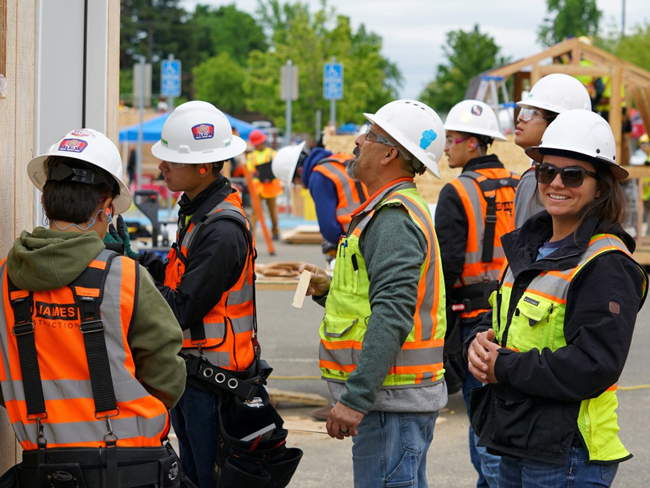
December 6, 2023
Solid foundation: How construction careers support health
Steady employment can improve a person's health and well-being. Our new …

November 1, 2023
Meet our 2023 to 2024 public health fellows
To help develop talented, diverse community leaders, Kaiser Permanente …

October 11, 2023
Expanded gun violence prevention efforts
The next phase for the Kaiser Permanente Center for Gun Violence Research …

August 17, 2023
Beyond clinic walls: Research supporting healthy communities
Stories in the Department of Research & Evaluation 2022 Annual Report demonstrat …

August 15, 2023
'Hot-spot' strategy gets more Californians vaccinated
A new location-based vaccine strategy by Kaiser Permanente was successful …

August 10, 2023
Highlighting our community health work in Southern California
The Kaiser Permanente Southern California 2022 Community Health Snapshot …

August 2, 2023
Social health resources are just a click or call away
The Kaiser Permanente Community Support Hub can help members find community …

June 30, 2023
Our response to Supreme Court ruling on LGBTQIA+ protections
Kaiser Permanente addresses the Supreme Court decision on LGBTQIA+ protections …

June 29, 2023
Our response to Supreme Court's ruling on affirmative action
Kaiser Permanente addresses the Supreme Court decision on affirmative action …

June 29, 2023
Special Olympics athletes go for the gold
Kaiser Permanente celebrated its sixth year as official health partner …

June 14, 2023
Honored for commitment to people with disabilities
The Achievable Foundation recognized Kaiser Permanente for its work to …

June 7, 2023
Engaging businesses for action on climate and health equity
New climate collaborative with BSR announced at joint Kaiser Permanente …

May 22, 2023
Investing and partnering to build healthier communities
Kaiser Permanente supports Asian Americans Advancing Justice to promote …

May 10, 2023
A workplace for all
We value and respect employees and physicians of all backgrounds, identities, …

May 10, 2023
Equity, inclusion, and diversity
We strive for equity and inclusion for all.

May 2, 2023
Women lead an industrial revolution at the Kaiser Shipyards
Early women workers at the Kaiser shipyards diversified home front World …
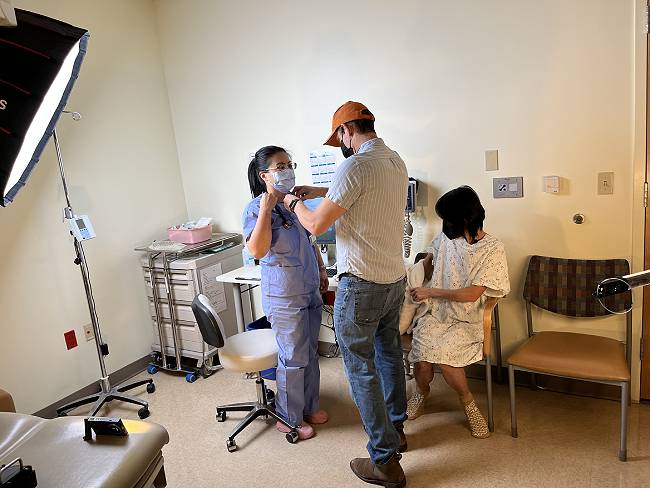
April 27, 2023
Inspiring students to pursue health care careers
Kaiser Permanente is confronting future health care staffing challenges …

April 25, 2023
Hannah Peters, MD, provides essential care to ‘Rosies’
When thousands of women industrial workers, often called “Rosies,” joined …

April 11, 2023
Collaboration is key to keeping people insured
With the COVID-19 public health emergency ending, states, community organization …

April 5, 2023
Housing help brings stability to patients’ lives
With medical-legal partnerships, we’re helping prevent evictions. Patients …

April 3, 2023
Hospital patients who are homeless connected to housing
A Kaiser Permanente program connects patients experiencing homelessness …

March 29, 2023
Supporting a safer future with public health
We’re partnering on 3 initiatives to strengthen public health in the United …

March 28, 2023
Sentenced to prison, not a life of bad health
Reentering society after serving time can land people in unhealthy situations. …

March 14, 2023
Named among World’s Most Ethical Companies for 5th time
Organizations that receive this recognition improve communities, build …

March 13, 2023
Making waves with our first female sports ambassador
Kaiser Permanente in Southern California partners with San Diego Wave Fútbol …

February 24, 2023
Current air pollution standards tied to higher heart risks
Kaiser Permanente study of 3.7 million adults provides support for strengthening …

February 17, 2023
Good health starts in our communities: 2022 by the numbers
Kaiser Permanente supports total health in our communities in partnership …
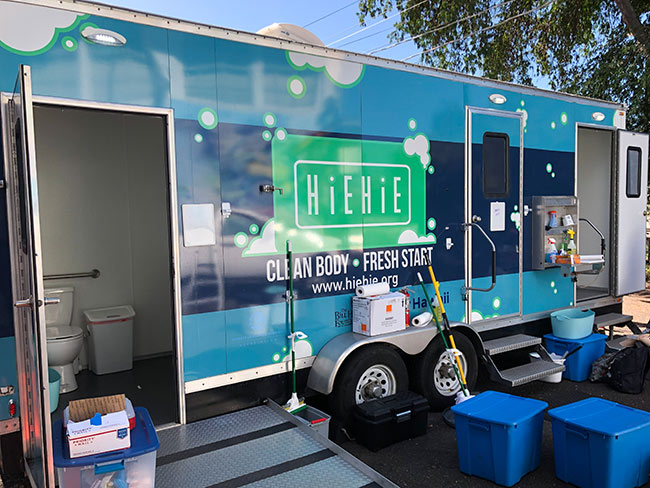
February 3, 2023
Addressing health and housing insecurity
Kaiser Permanente supports 3 Hawaii-based nonprofits.

January 17, 2023
Lawmakers must act to boost telehealth and digital equity
Making key pandemic-era telehealth policies permanent and ensuring more …

November 14, 2022
It’s time to rethink health care quality measurement
To meaningfully improve health equity, we must shift our focus to outcomes …
November 11, 2022
Early leaders in equity and inclusion
Explore Kaiser Permanente’s commitment to equitable, culturally responsive …

November 11, 2022
High-quality, equitable care
We believe everyone has a right to good health.

November 8, 2022
Protecting access to medical care for legal immigrants
A statement of support from Kaiser Permanente chair and CEO Greg A. Adams …

September 14, 2022
Rent reporting can help millions build credit and thrive
A good credit score can make it easier to buy a home, pay for school, or …

May 27, 2022
Grants help AAPI communities and businesses
Kaiser Permanente is working with community organizations and businesses …
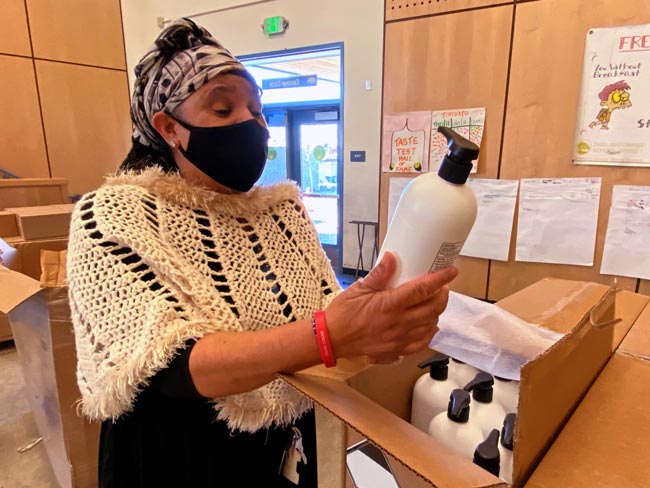
May 4, 2022
Donated supplies keep community organizations pandemic-ready
We donated over $28 million worth of face masks, hand sanitizer, and other …

March 22, 2022
Our commitment to equity and our LGBTQIA+ communities
A statement from chair and chief executive officer Greg A. Adams.

February 28, 2022
Private investments in housing are critical — and not enough
Public policy changes and private investments together are needed to end …

February 21, 2022
A best place to work for LGBTQ+ equality
Human Rights Campaign Foundation gives Kaiser Permanente another perfect …
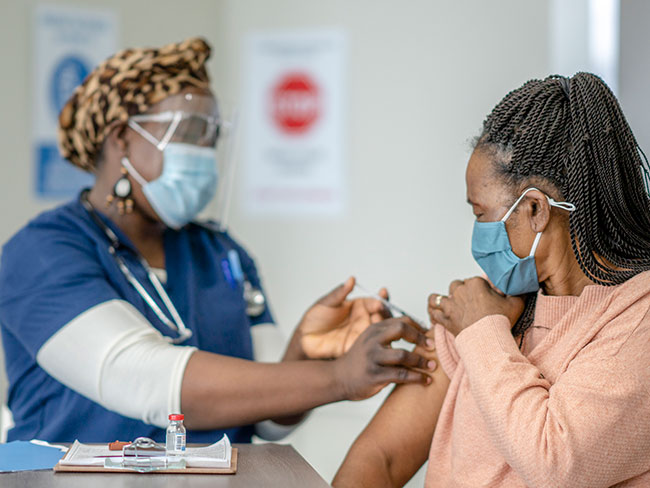
December 6, 2021
Faith leaders use trusted voices to encourage vaccination
Grants expand support for faith-based organizations working to protect …
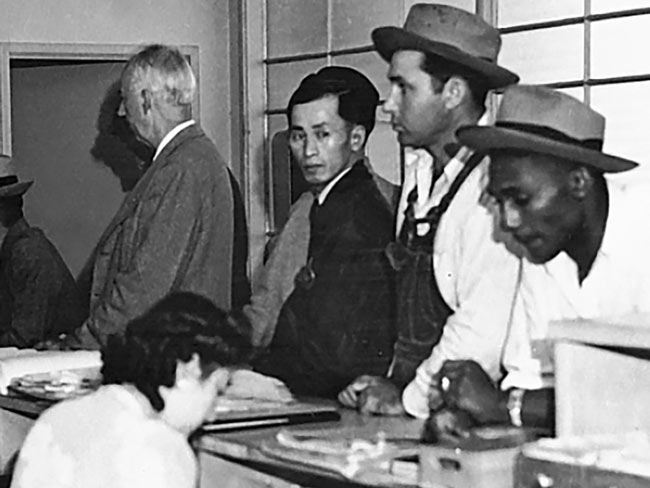
August 25, 2021
Kaiser Permanente’s history of nondiscrimination
Our principles of diversity and our inclusive care began during World War …

August 19, 2021
Supporting small businesses owned by people of color
Kaiser Permanente’s partnership with Local Initiatives Support Corporation, …
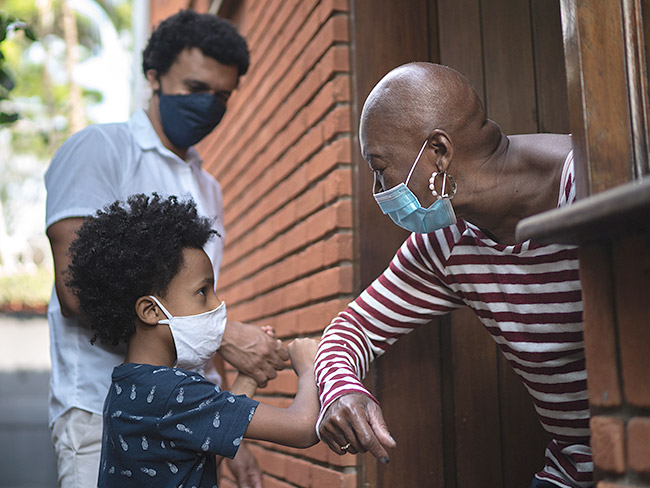
July 7, 2021
Achieving health equity
Equal medical care is not enough to end disparities in health outcomes.
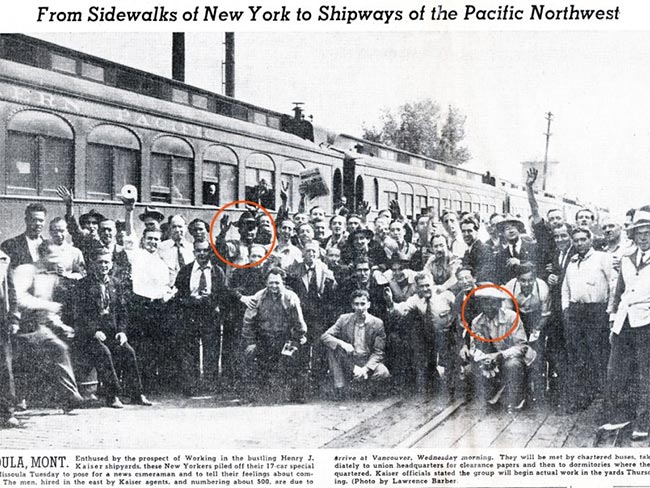
June 2, 2021
Path to employment: Black workers in Kaiser shipyards
Kaiser Permanente, Henry J. Kaiser’s sole remaining institutional legacy, …

May 24, 2021
Supporting access to telehealth for vulnerable populations
Kaiser Permanente grants help fund community organizations working to expand …

April 30, 2021
Our support for banning menthol cigarettes, flavored cigars
Kaiser Permanente applauds the Food and Drug Administration’s commitment …
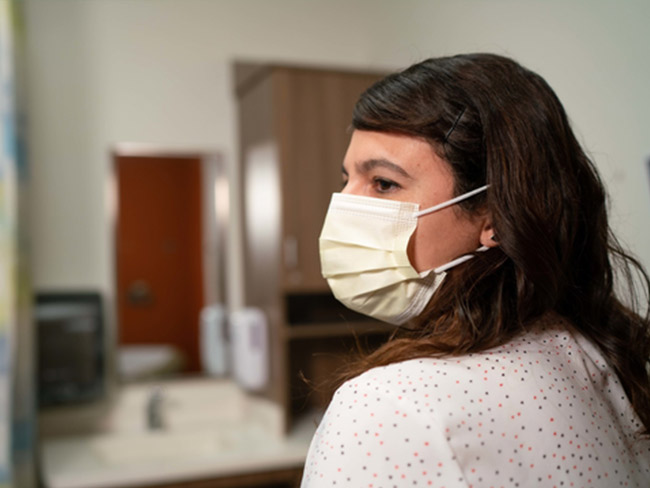
April 28, 2021
COVID-19 outcomes are more severe for people of color
Kaiser Permanente research underscores the importance of culturally appropriate …
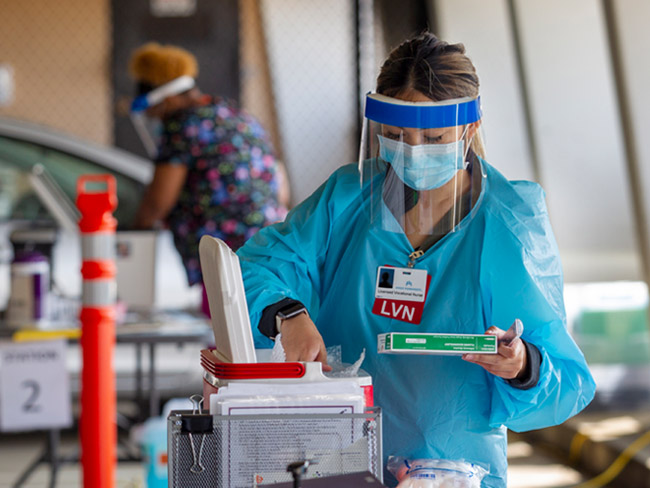
March 23, 2021
Vaccine Equity Toolkit will help address equitable access
As vaccines bring hope to end the pandemic, Kaiser Permanente’s toolkit …

October 7, 2020
Advancing health equity in education and the workplace
Kaiser Permanente supports California measure allowing universities and …

August 19, 2020
Stroke care you can count on
Kaiser Permanente hospitals were again recognized by the American Heart …

May 19, 2020
Large decrease in hospitalized heart attack patients
New Kaiser Permanente research backs anecdotal reports that people are …
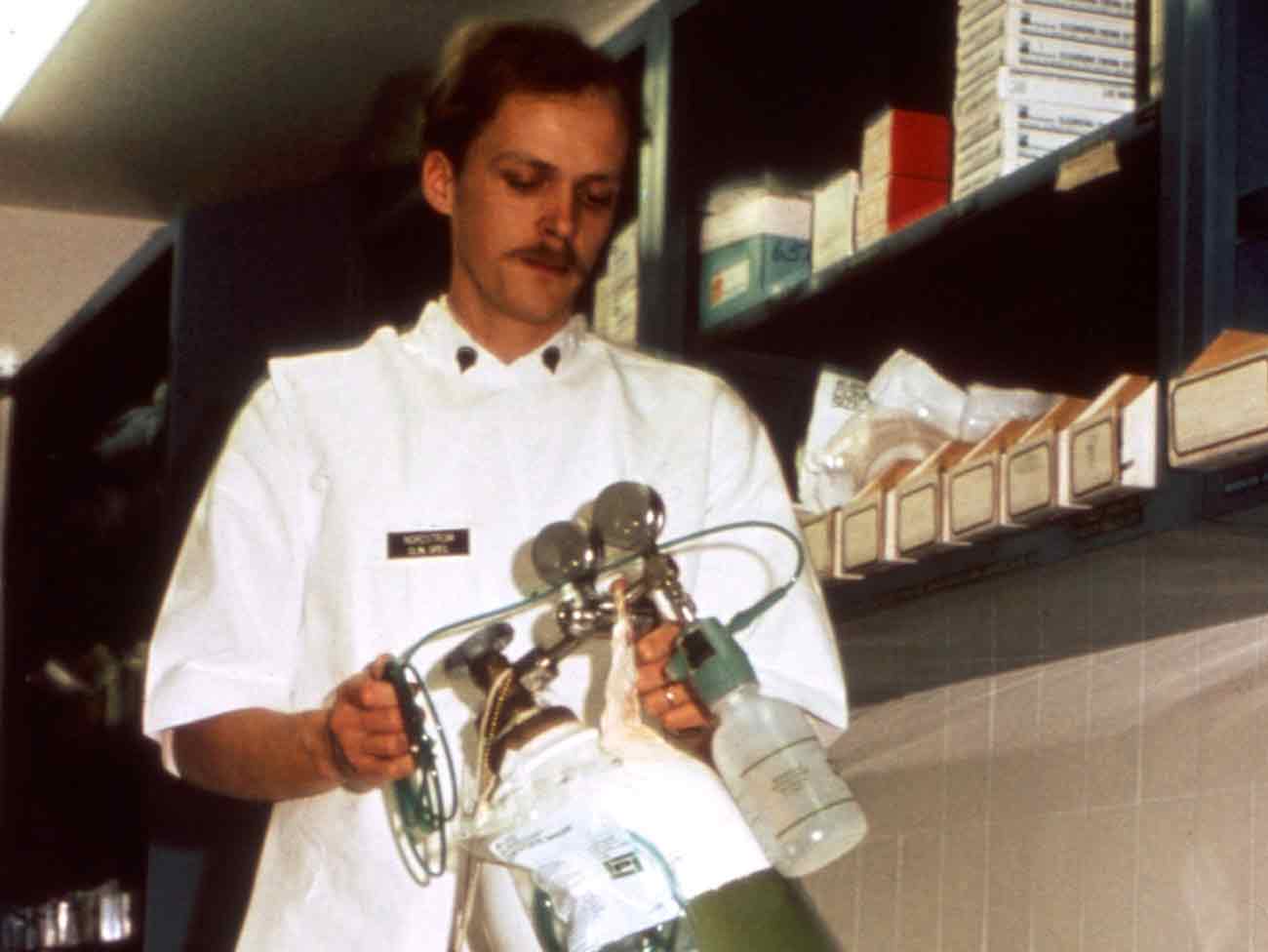
November 8, 2019
Swords into stethoscopes — veterans in health professions
Kaiser Permanente has actively hired veterans in all capacities since World …

August 28, 2019
When labor and management work side by side
From war-era labor-management committees to today’s unit-based teams, cooperatio …

June 5, 2019
Breaking LGBT barriers for Kaiser Permanente employees
“We managed to ultimately break through that barrier.” — Kaiser Permanente …

March 29, 2019
Equal pay for equal work
Kaiser shipyards in Oregon hired the first 2 female welders at equal pay …

March 8, 2018
Slacks, not slackers — women’s role in winning World War II
Women who worked in the Kaiser shipyards helped lay the groundwork for …

February 22, 2018
The amazing true story of Park Ranger Betty Reid Soskin
She is the oldest national park ranger in the country with a legacy of …
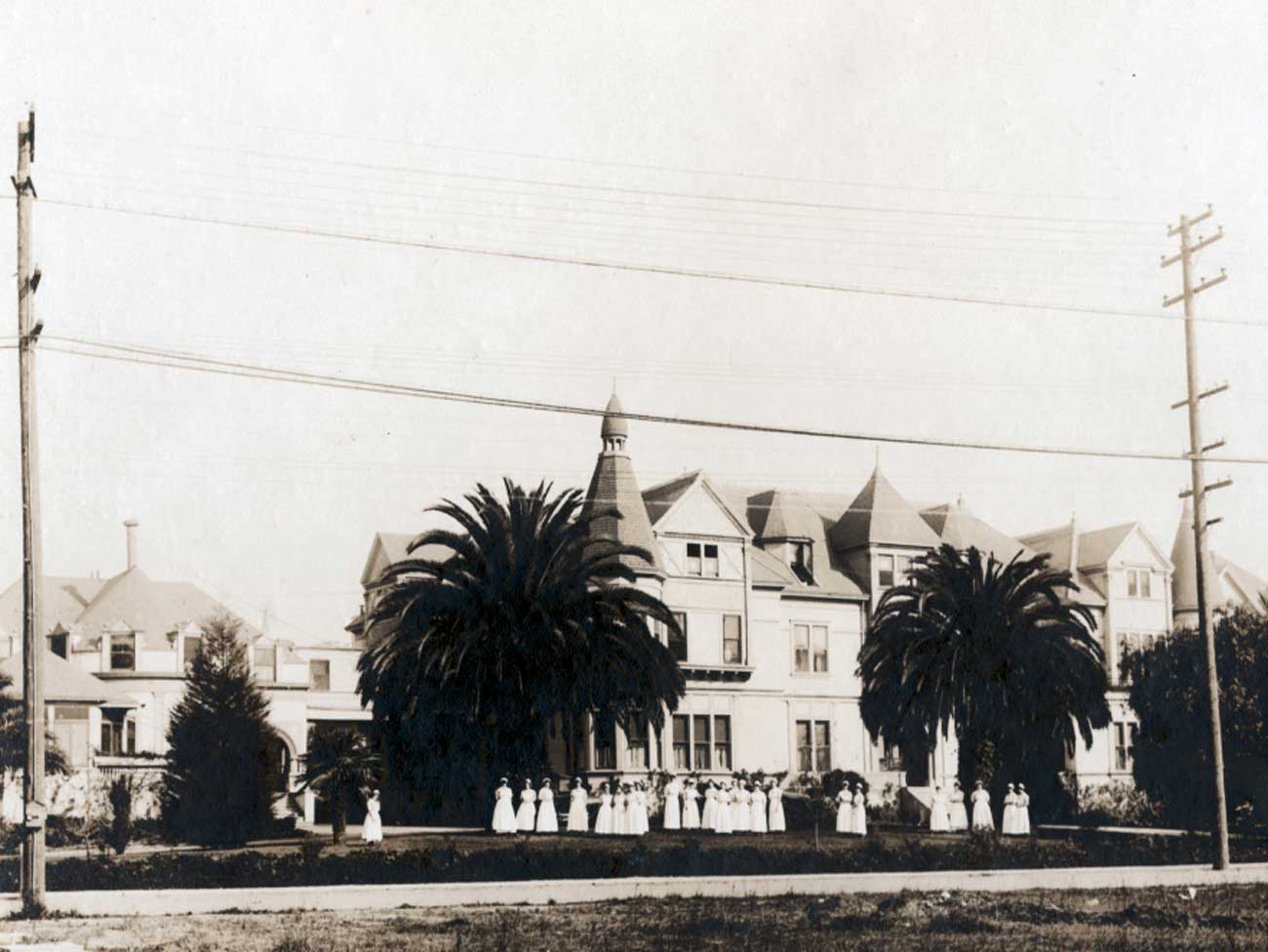
October 12, 2017
An experiment named Fabiola
Health care takes root in Oakland, California.

August 10, 2017
‘Good medicine brought within reach of all'
Paul de Kruif, microbiologist and writer, provides early accounts of Kaiser …
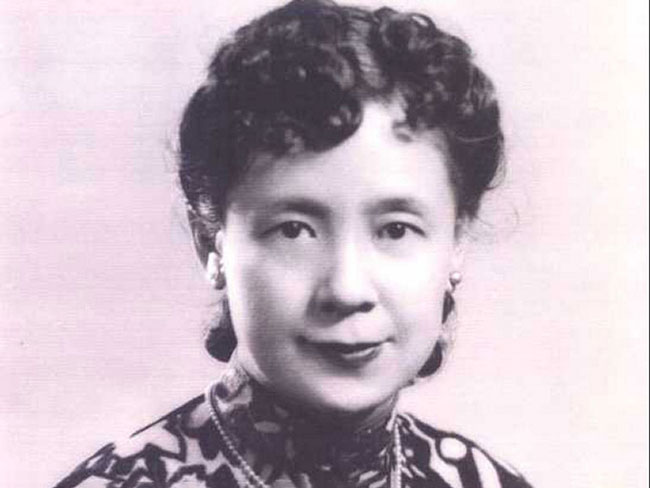
March 7, 2017
Beatrice Lei, MD: From Shantou, China, to Richmond, California
She served as a role model and inspiration to the women physicians and …
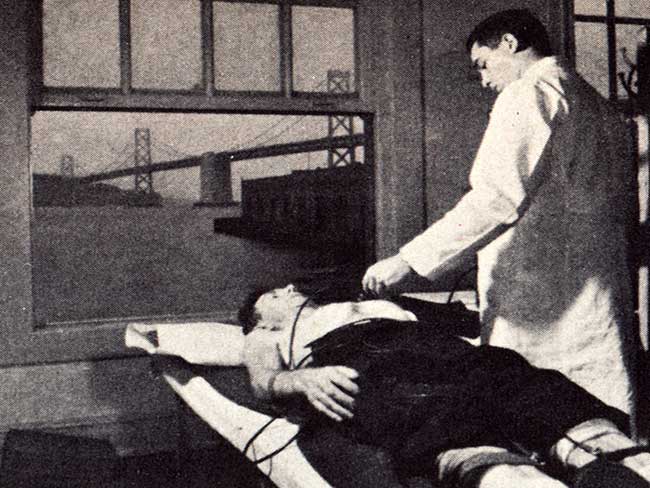
March 1, 2017
Screening for better health: Medical care as a right
When industrial workers joined the health plan, an integrated battery of …
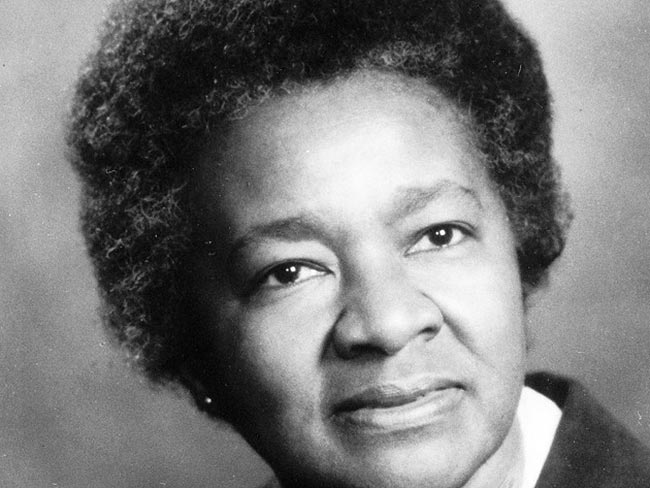
February 3, 2017
Ellamae Simmons — trailblazing African American physician
Ellamae Simmons, MD, worked at Kaiser Permanente for 25 years, and to this …

May 5, 2016
Male nursing pioneers
Groundbreaking male students diversify the Kaiser Foundation School of …
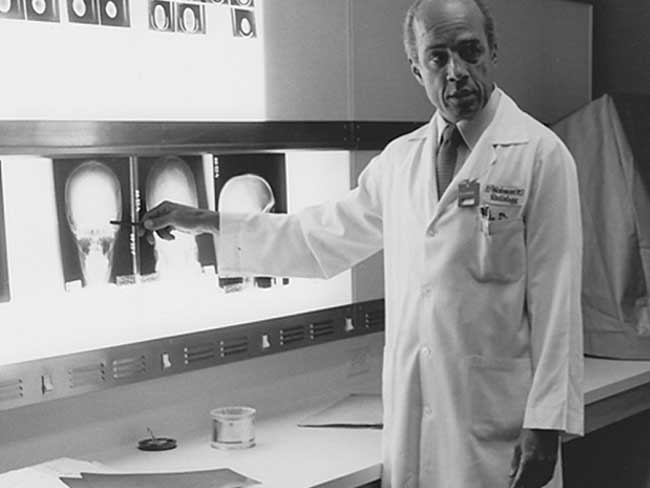
April 27, 2015
Eugene Hickman, MD — Pioneering Black physician
Dr. Hickman had a long career at Kaiser Permanente, becoming president …

May 5, 2014
Black nurses get together to forge their own future
California African American nurses organize in early 1970s to address health …
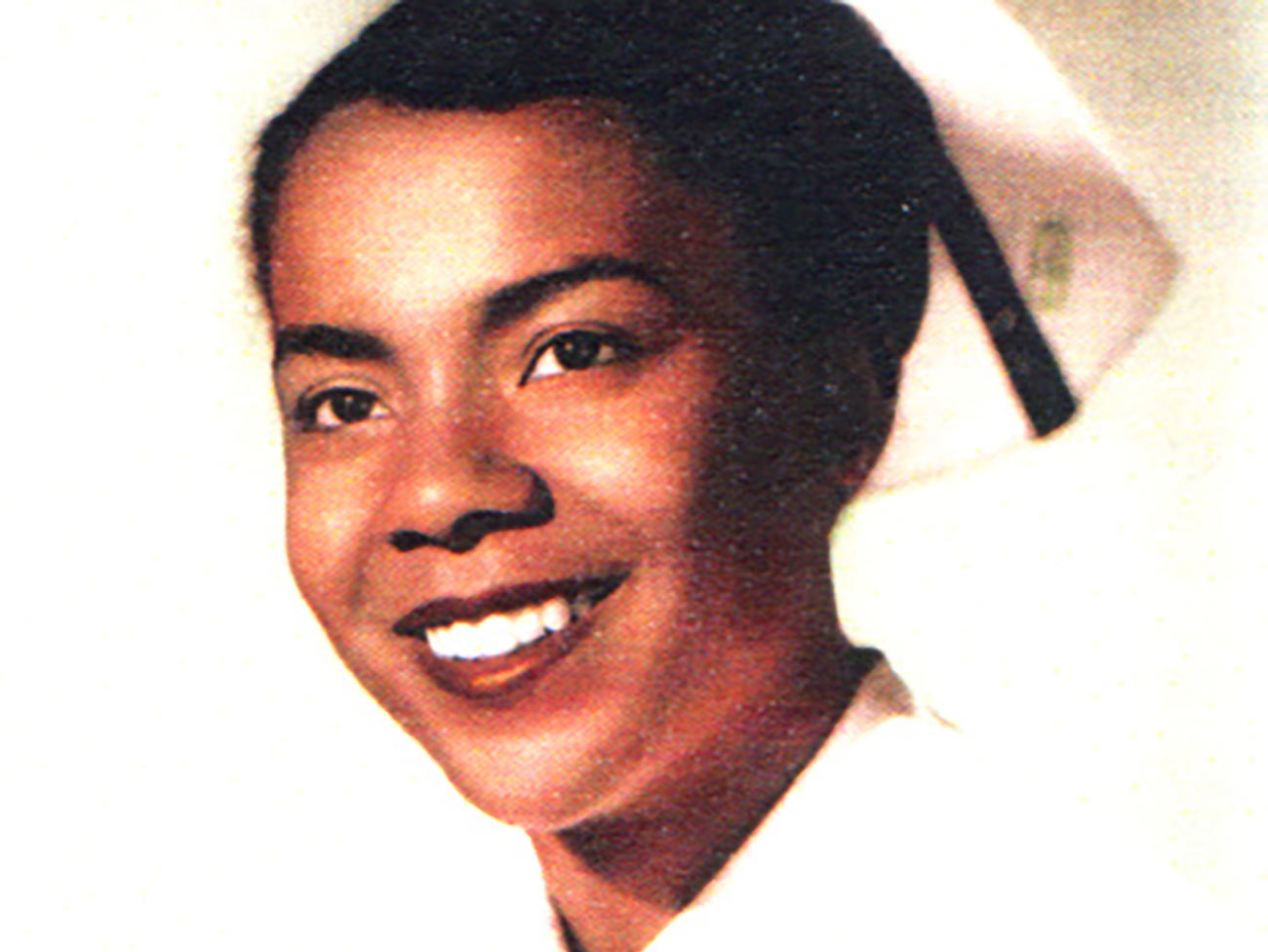
May 1, 2014
Beloved nurse earned place in Kaiser Permanente history
Jessie Cunningham, the first Black nursing supervisor at Oakland Medical …

February 18, 2014
Alva Wheatley: Champion of Kaiser Permanente diversity
Third in a series marking Black History Month.
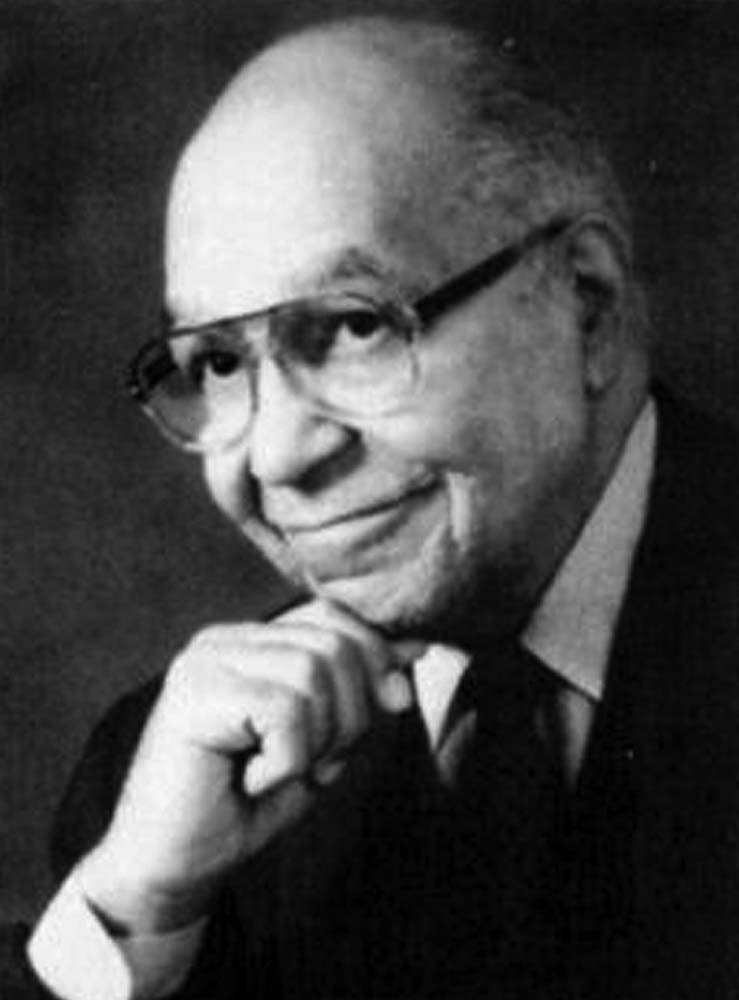
January 31, 2014
Raleigh Bledsoe, MD: First Black radiologist west of Rockies
Dr. Bledsoe became the first Black physician for Southern California Permanente …

August 2, 2013
Image of Rosie broadens to embrace African American women
Black women find new opportunities to elevate work status on the World …

July 15, 2013
Labor unions offer early support for nascent Permanente Health Plan
After World War II, the experience of the Kaiser Permanente Health Plan …

December 1, 2011
Kaiser Permanente’s early struggle to stand up to AIDS
New challenges provided collaborative opportunities for Kaiser Permanente …
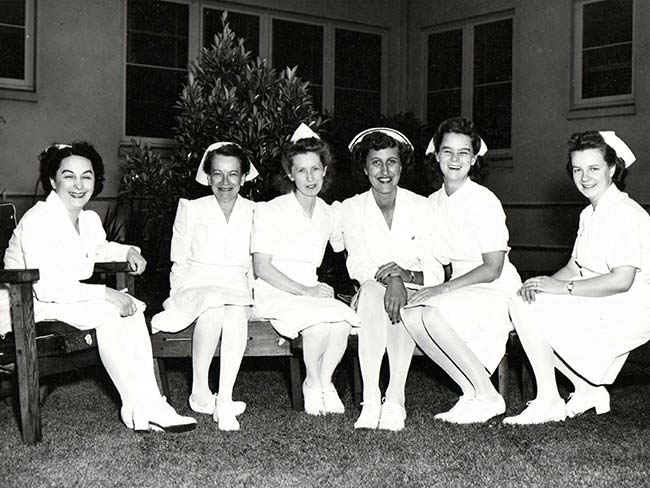
April 30, 2011
Nurses begin quest for professional recognition after World War II
Co-founder Dr. Sidney Garfield makes history by signing the first nurse …